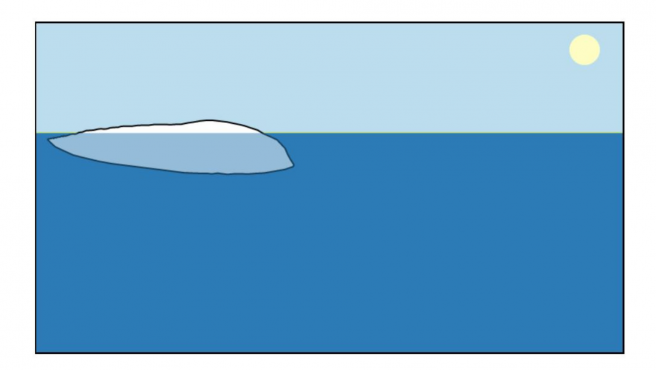No products in the cart.

Water is essential for health. And bottled water is a very common food. It is convenient to have information about it. Don’t forget to look at the labels. Simón David Rodríguez is an expert in nutrition and food technology. In this article he describes and classifies these waters and explains their properties and benefits.
With a degree in Food Science and Technology and a Diploma in Human Nutrition and Dietetics, Simon David Rodríguez has worked as a cook and nutritionist, and is now developing his knowledge and his specialty in a company, focused on quality and food safety. He also has a blog, Nutritecno.
Gone are the days when bottled water, believed to have curative properties, was sold in pharmacies under the label of “mineral-medicinal water.”
These bottled waters – which responded to the population’s interest in European spas – are now food products subject to strict quality and safety controls that take care of and preserve their original purity.
They are no longer sold in pharmacies, but their different composition in minerals can offer health benefits: it is a “natural drink with healthy effects, which provides essential minerals for the proper functioning of our body”, according to the Research Institute of Water and Health (IIAS).
But how are bottled waters different? What are the types of mineral waters? Is there any better than another?
Classification
There are different types of water classifications, but there are basically three types of bottled drinking water: natural minerals, spring water and prepared drinking water.
Natural mineral waters are obtained directly from springs or perforated sources and have a specific mineral composition; those from the spring are captured directly from the surface, and are microbiologically pure, but without the characteristics of mineral waters; and the rest are drinking water prepared from various sources and treated to meet the requirements of public consumption.
More than 96% of the bottled water that we can find on the shelves of any establishment corresponds to natural mineral waters, almost 2% is spring water, and the rest are prepared drinking water, according to data from the National Association of Beverage Water Companies Packaged (ANEABE).
Water for everybody
For consumption as a packaged drink, the Spanish food code specifies nine types: bicarbonated, sulphated, chlorinated, ferruginous, sodium, hypo-sodium, calcium, fluoride and magnesium waters.
If you suffer from heartburn and heavy digestion, bicarbonate water may have something to say in your favor; With a concentration of bicarbonate that exceeds 600 milligrams per liter (mg / l), it is a water with buffer power –which keeps the pH stable-, and favors the task of pancreatic ferments and the saponifying action of bile.
A study published in the “European Journal of Nutrition” showed that with half a liter of this type of water in meals, a reduction of between 6% and 15% of blood lipids can be achieved during digestion.
Chlorinated waters (more than 200 mg / l of chlorine) also speed up digestion, since they stimulate the secretion of hydrochloric acid and gastric motility -which produces a beneficial action on the gallbladder- but, above all, they are antidiuretic.
If you suffer from constipation, sulfated waters – which contain at least 200 mg / l of sulfates – can help you, as they act as purgative and act on the gallbladder, activating the intestinal movement.
They are called “magnesium waters” those that have more than 50 milligrams per liter of magnesium. They have a diuretic effect, are mildly laxative, and are used in processes to relieve stress and anxiety. In addition, they help to fix calcium in the bones, which also works for those with low muscle tone.
The waters that have more than 1 milligram of iron for each liter of water are classified as ferruginous waters and can help us to have a healthy hemoglobin, that is, with the appropriate iron levels. Remember that iron is essential to transport oxygen in the blood.
If you suffer from blood pressure, lithiasis or kidney problems, the right water for you is low sodium: these are waters with less than 20 milligrams of sodium per liter, and being ‘low in sodium’ it is easily absorbable, which favors diuresis.
When the water has more than 200 mg / l of sodium (ten times more than the waters that are considered low sodium) they are called “sodium waters”: they are not indicated for people with high blood pressure, but they can have an “alkalizing” effect of urine, which can help pass small stones. They are also favorable for disorders of the digestive system.
The waters that can help us prevent osteoporosis are calcium waters, which contain more than 150 mg / l of calcium. In addition, they are useful in cases such as colitis or as a cure for diuresis in inflammation of the urinary tract.
Fluoridated waters – those containing more than 1 milligram of fluorides per liter – were endorsed to prevent cavities by several trials in the United States, as a public health measure.
The use of fluoride in drinking water has contributed significantly to counteract the caries epidemic that has accompanied developed societies due to the escalation of sugar consumption.
The range of possibilities is very wide, but there are no better waters than others, nor are any natural mineral waters the same. There are only different types, which we can drink depending on our situation; Of course, it is always advisable, before making your own conclusions, to go to health personnel to inform us in depth of all the benefits that they can offer us.
What’s your reaction?
Love0
Sad0
Happy0
Sleepy0
Angry0
Dead0
Wink0









